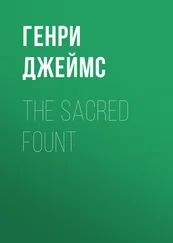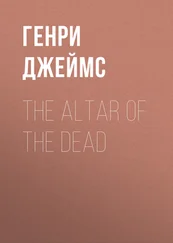Генри Джеймс - The Coxon Fund
Здесь есть возможность читать онлайн «Генри Джеймс - The Coxon Fund» — ознакомительный отрывок электронной книги совершенно бесплатно, а после прочтения отрывка купить полную версию. В некоторых случаях можно слушать аудио, скачать через торрент в формате fb2 и присутствует краткое содержание. Жанр: foreign_prose, foreign_antique, на английском языке. Описание произведения, (предисловие) а так же отзывы посетителей доступны на портале библиотеки ЛибКат.
- Название:The Coxon Fund
- Автор:
- Жанр:
- Год:неизвестен
- ISBN:нет данных
- Рейтинг книги:5 / 5. Голосов: 1
-
Избранное:Добавить в избранное
- Отзывы:
-
Ваша оценка:
- 100
- 1
- 2
- 3
- 4
- 5
The Coxon Fund: краткое содержание, описание и аннотация
Предлагаем к чтению аннотацию, описание, краткое содержание или предисловие (зависит от того, что написал сам автор книги «The Coxon Fund»). Если вы не нашли необходимую информацию о книге — напишите в комментариях, мы постараемся отыскать её.
The Coxon Fund — читать онлайн ознакомительный отрывок
Ниже представлен текст книги, разбитый по страницам. Система сохранения места последней прочитанной страницы, позволяет с удобством читать онлайн бесплатно книгу «The Coxon Fund», без необходимости каждый раз заново искать на чём Вы остановились. Поставьте закладку, и сможете в любой момент перейти на страницу, на которой закончили чтение.
Интервал:
Закладка:
Henry James
The Coxon Fund
I
“They’ve got him for life!” I said to myself that evening on my way back to the station; but later on, alone in the compartment (from Wimbledon to Waterloo, before the glory of the District Railway) I amended this declaration in the light of the sense that my friends would probably after all not enjoy a monopoly of Mr. Saltram. I won’t pretend to have taken his vast measure on that first occasion, but I think I had achieved a glimpse of what the privilege of his acquaintance might mean for many persons in the way of charges accepted. He had been a great experience, and it was this perhaps that had put me into the frame of foreseeing how we should all, sooner or later, have the honour of dealing with him as a whole. Whatever impression I then received of the amount of this total, I had a full enough vision of the patience of the Mulvilles. He was to stay all the winter: Adelaide dropped it in a tone that drew the sting from the inevitable emphasis. These excellent people might indeed have been content to give the circle of hospitality a diameter of six months; but if they didn’t say he was to stay all summer as well it was only because this was more than they ventured to hope. I remember that at dinner that evening he wore slippers, new and predominantly purple, of some queer carpet-stuff; but the Mulvilles were still in the stage of supposing that he might be snatched from them by higher bidders. At a later time they grew, poor dears, to fear no snatching; but theirs was a fidelity which needed no help from competition to make them proud. Wonderful indeed as, when all was said, you inevitably pronounced Frank Saltram, it was not to be overlooked that the Kent Mulvilles were in their way still more extraordinary: as striking an instance as could easily be encountered of the familiar truth that remarkable men find remarkable conveniences.
They had sent for me from Wimbledon to come out and dine, and there had been an implication in Adelaide’s note—judged by her notes alone she might have been thought silly—that it was a case in which something momentous was to be determined or done. I had never known them not be in a “state” about somebody, and I dare say I tried to be droll on this point in accepting their invitation. On finding myself in the presence of their latest discovery I had not at first felt irreverence droop—and, thank heaven, I have never been absolutely deprived of that alternative in Mr. Saltram’s company. I saw, however—I hasten to declare it—that compared to this specimen their other phoenixes had been birds of inconsiderable feather, and I afterwards took credit to myself for not having even in primal bewilderments made a mistake about the essence of the man. He had an incomparable gift; I never was blind to it—it dazzles me still. It dazzles me perhaps even more in remembrance than in fact, for I’m not unaware that for so rare a subject the imagination goes to some expense, inserting a jewel here and there or giving a twist to a plume. How the art of portraiture would rejoice in this figure if the art of portraiture had only the canvas! Nature, in truth, had largely rounded it, and if memory, hovering about it, sometimes holds her breath, this is because the voice that comes back was really golden.
Though the great man was an inmate and didn’t dress, he kept dinner on this occasion waiting, and the first words he uttered on coming into the room were an elated announcement to Mulville that he had found out something. Not catching the allusion and gaping doubtless a little at his face, I privately asked Adelaide what he had found out. I shall never forget the look she gave me as she replied: “Everything!” She really believed it. At that moment, at any rate, he had found out that the mercy of the Mulvilles was infinite. He had previously of course discovered, as I had myself for that matter, that their dinners were soignés. Let me not indeed, in saying this, neglect to declare that I shall falsify my counterfeit if I seem to hint that there was in his nature any ounce of calculation. He took whatever came, but he never plotted for it, and no man who was so much of an absorbent can ever have been so little of a parasite. He had a system of the universe, but he had no system of sponging—that was quite hand-to-mouth. He had fine gross easy senses, but it was not his good-natured appetite that wrought confusion. If he had loved us for our dinners we could have paid with our dinners, and it would have been a great economy of finer matter. I make free in these connexions with the plural possessive because if I was never able to do what the Mulvilles did, and people with still bigger houses and simpler charities, I met, first and last, every demand of reflexion, of emotion—particularly perhaps those of gratitude and of resentment. No one, I think, paid the tribute of giving him up so often, and if it’s rendering honour to borrow wisdom I’ve a right to talk of my sacrifices. He yielded lessons as the sea yields fish—I lived for a while on this diet. Sometimes it almost appeared to me that his massive monstrous failure—if failure after all it was—had been designed for my private recreation. He fairly pampered my curiosity; but the history of that experience would take me too far. This is not the large canvas I just now spoke of, and I wouldn’t have approached him with my present hand had it been a question of all the features. Frank Saltram’s features, for artistic purposes, are verily the anecdotes that are to be gathered. Their name is legion, and this is only one, of which the interest is that it concerns even more closely several other persons. Such episodes, as one looks back, are the little dramas that made up the innumerable facets of the big drama—which is yet to be reported.
II
It is furthermore remarkable that though the two stories are distinct—my own, as it were, and this other—they equally began, in a manner, the first night of my acquaintance with Frank Saltram, the night I came back from Wimbledon so agitated with a new sense of life that, in London, for the very thrill of it, I could only walk home. Walking and swinging my stick, I overtook, at Buckingham Gate, George Gravener, and George Gravener’s story may be said to have begun with my making him, as our paths lay together, come home with me for a talk. I duly remember, let me parenthesise, that it was still more that of another person, and also that several years were to elapse before it was to extend to a second chapter. I had much to say to him, none the less, about my visit to the Mulvilles, whom he more indifferently knew, and I was at any rate so amusing that for long afterwards he never encountered me without asking for news of the old man of the sea. I hadn’t said Mr. Saltram was old, and it was to be seen that he was of an age to outweather George Gravener. I had at that time a lodging in Ebury Street, and Gravener was staying at his brother’s empty house in Eaton Square. At Cambridge, five years before, even in our devastating set, his intellectual power had seemed to me almost awful. Some one had once asked me privately, with blanched cheeks, what it was then that after all such a mind as that left standing. “It leaves itself!” I could recollect devoutly replying. I could smile at present for this remembrance, since before we got to Ebury Street I was struck with the fact that, save in the sense of being well set up on his legs, George Gravener had actually ceased to tower. The universe he laid low had somehow bloomed again—the usual eminences were visible. I wondered whether he had lost his humour, or only, dreadful thought, had never had any—not even when I had fancied him most Aristophanesque. What was the need of appealing to laughter, however, I could enviously enquire, where you might appeal so confidently to measurement? Mr.
Читать дальшеИнтервал:
Закладка:
Похожие книги на «The Coxon Fund»
Представляем Вашему вниманию похожие книги на «The Coxon Fund» списком для выбора. Мы отобрали схожую по названию и смыслу литературу в надежде предоставить читателям больше вариантов отыскать новые, интересные, ещё непрочитанные произведения.
Обсуждение, отзывы о книге «The Coxon Fund» и просто собственные мнения читателей. Оставьте ваши комментарии, напишите, что Вы думаете о произведении, его смысле или главных героях. Укажите что конкретно понравилось, а что нет, и почему Вы так считаете.












